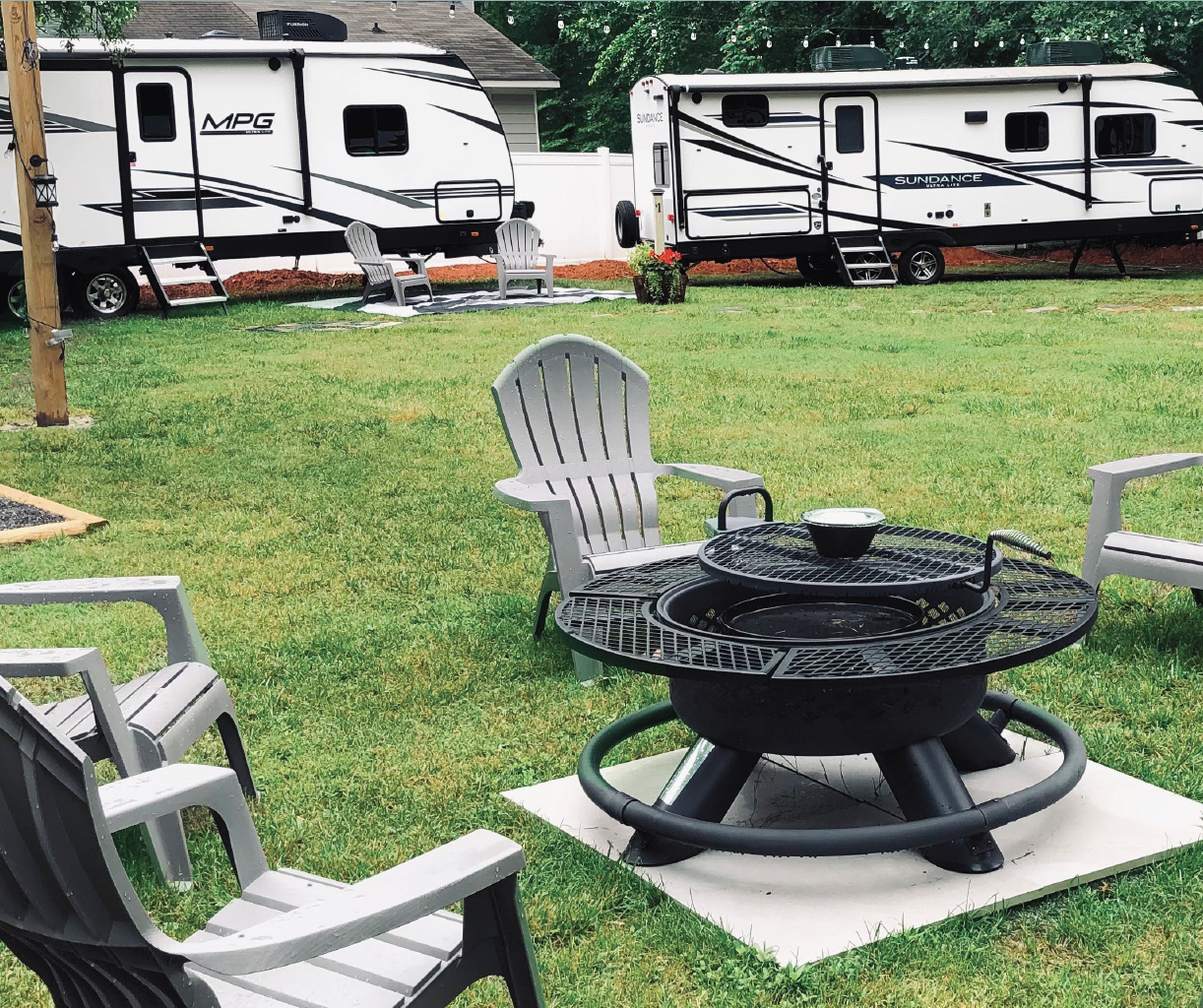- English
- 中文 (Chinese)
- Français (French)
- Deutsch (German)
- 日本語 (Japanese)
- Español (Spanish)
Housing Innovation Series: Travel Trailers as a Housing Option

Prepared by the Lotus Campaign and published by the ULI Homeless to Housed initiative
This report arose from a conversation with Bruce Etkin (see About Our Sponsor) concerning the viability of using small (under 500 square feet), mobile, low cost, single-story units to create a community to house those experiencing homelessness on both a temporary and longer-term basis. Beginning with the property types shown in Table A, a short list of potential options was identified. These included conventional travel trailers, small manufactured (“mobile”) homes, park model homes, tiny homes, modular pods, and motorized recreation vehicles. While reviewing this list, it became clear that conventional travel trailers offered significant potential as suitable, ultra-low cost, mobile housing.
This report explores the advantages, obstacles, and alternative variations of leveraging conventional travel trailers to address deeply affordable housing needs, and provides recommendations for developing travel trailer communities geared towards those experiencing homelessness. The United States is in the midst of a housing affordability crisis that is having a profound impact on homelessness. Addressing this situation will require a reevaluation of existing practices and policies as to the production of affordable housing, as well as an exploration of innovative approaches to addressing homelessness. This report is part of the Lotus Campaign’s Housing Innovation Series, which is being created to stimulate discussion of these issues. Each paper in the series will focus on a single concept related to the production of affordable housing and on how best to address homelessness and will evaluate its viability in terms of economics and mission. Issues of cost, benefit, expected impact, suitability, desirability, and obstacles to implementation will be key. A prime consideration for the series will be how and to what extent the private sector can be involved in addressing homelessness.
Interested in ULI's work on addressing homelessness? In 2022, the Terwilliger Center for Housing, with initial funding by philanthropist and entrepreneur Preston Butcher, launched the Homeless to Housed Initiative, which works to explore real estate solutions to the growing crisis impacting communities everywhere. Learn more about the ULI Homeless to Housed Initiative.
Resumen del informe: This report arose from a conversation with Bruce Etkin (see About Our Sponsor) concerning the viability of using small (under 500 square feet), mobile, low cost, single-story units to create a community to house those experiencing homelessness on both a temporary and longer-term basis. Beginning with the property types shown in Table A, a short list of potential options was identified. These included conventional travel trailers, small manufactured (“mobile”) homes, park model homes, tiny homes, modular pods, and motorized recreation vehicles. While reviewing this list, it became clear that conventional travel trailers offered significant potential as suitable, ultra-low cost, mobile housing.
This report explores the advantages, obstacles, and alternative variations of leveraging conventional travel trailers to address deeply affordable housing needs, and provides recommendations for developing travel trailer communities geared towards those experiencing homelessness. The United States is in the midst of a housing affordability crisis that is having a profound impact on homelessness. Addressing this situation will require a reevaluation of existing practices and policies as to the production of affordable housing, as well as an exploration of innovative approaches to addressing homelessness. This report is part of the Lotus Campaign’s Housing Innovation Series, which is being created to stimulate discussion of these issues. Each paper in the series will focus on a single concept related to the production of affordable housing and on how best to address homelessness and will evaluate its viability in terms of economics and mission. Issues of cost, benefit, expected impact, suitability, desirability, and obstacles to implementation will be key. A prime consideration for the series will be how and to what extent the private sector can be involved in addressing homelessness.
Interested in ULI's work on addressing homelessness? In 2022, the Terwilliger Center for Housing, with initial funding by philanthropist and entrepreneur Preston Butcher, launched the Homeless to Housed Initiative, which works to explore real estate solutions to the growing crisis impacting communities everywhere. Learn more about the ULI Homeless to Housed Initiative.


